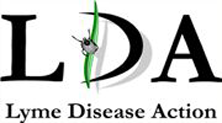On Thursday 22nd October, the Lords held a short debate on Lyme disease in Grand Committee. To ask Her Majesty’s Government what action they are taking to combat Lyme disease and other tick-related illnesses.
Prior to the debate LDA had issued a House of Lords Briefing, providing sections on basic facts on Lyme disease, what has made Lyme disease contentious, what has been achieved in the last 2 years and what needs to be done. This last is LDA’s proposed 5 point action plan.
Tabled by Lord Geaves, this debate attracted 8 speakers all with a personal interest. The debate had to fit into a 60 minute slot so with a 10 minute opening speech and a 12 minute response from the government Minister, each Peer had just 4 minutes to make their points.
The video recording of the debate is available through parliamentlive.tv – those wanting to reduce broadband usage, can switch to audio only. The Hansard transcript is also available.
The government response was given by the Parliamentary Under-Secretary of State Lord Prior of Brampton. Amongst the points he made –
“A big theme in the contributions from noble Lords has been the need to raise awareness, not just with the public but with GPs and clinicians.
“The briefing by the Lyme Disease Action group was excellent. It was measured, well-informed and very constructive, so I thank the group. Secondly, I know that Dr Tim Brooks, the head of the Rare and Imported Pathogens Laboratory at PHE at Porton Down, is very happy to meet with noble Lords or others who are interested outside the Chamber to discuss this in more detail.”
Lord Prior’s main conclusions were:
- “Lord Greaves, raised the issue of a national inquiry. I do not think that we will go down that route at this stage.”
- “Secondly, on the point raised by the noble Lord, Lord Patel, about the NICE guidelines on how early we should start treatment with antibiotics, I will take that up separately with NICE.”
- “GP awareness: we can and must do more to raise awareness. That is possibly the most important thing that we should be doing.”
- “More research is needed to identify the basis of these persistent symptoms and define effective treatments.”
- “Patients need to have access to physicians with an interest in Lyme disease. Since the disease can be present in many different ways and can be confused with other more life-threatening conditions, in future this could be best done by establishing a network of interested NHS practitioners across the country with multidisciplinary experience.”
LDA will be following up all these points with the parties concerned: Public Health England, the Department of Health and the Peers themselves. Physicians with an interest in Lyme disease may, we suspect, be more difficult to find, but we shall do all we can to locate them. Lord Prior stated
“Specialist doctors have access to the literature on Lyme disease and are trained in the recognition and management of the disease within their higher professional training and continuous professional development.”
However, having access to literature on Lyme disease does not mean that it is read. LDA said in the briefing note that “The current level of knowledge in the NHS is appalling. Doctors do not understand the tests, the epidemiology or the disease itself.” Improved awareness and improved education of specialists regarding the complexities of Lyme disease and the limitations of current knowledge in this field is a vital step towards improving patient care and safety.


 Printer Friendly
Printer Friendly